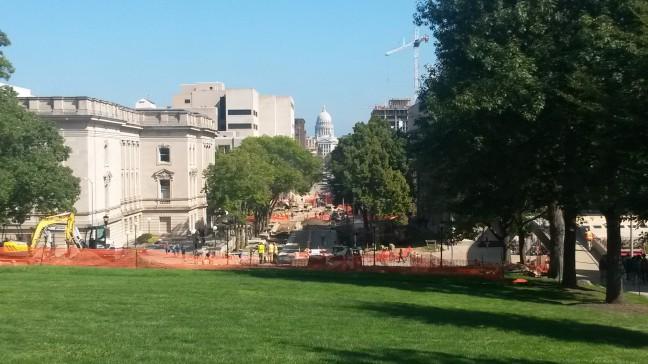Madison is in the process of bridging the gap between the “haves” and the “have-nots.”
The city is working to deliver broadband access to several locations around the city, including at Kennedy Heights, Brentwood, Allied Drive and Darbo-Worthington. The support for the proposal suggests Madison believes that Internet access is important for everyone. However, the difficulties in municipalities implementing telecommunication suggest this support is not held everywhere.
According to Community Broadband Networks, which is in favor of broadband Internet access, 19 communities in the United States have barriers in place that create hurdles for local communities to decide if they need broadband internet access. For instance, Texas completely prohibits municipalities and public power utilities from offering telecommunications to the public. In Pennsylvania, communities cannot provide broadband services unless the local telephone company refuses to. Although Wisconsin does not have an outright ban, there are some procedural barriers.
Wisconsin Statue 66.0422 requires that if a local government wants to provide a broadband service to the public, it must meet a list of criteria. First, the government must hold a public hearing on the proposal and notify the public of the hearing. The local government must also compile a cost-benefit analysis report of the project at least 30 days before the public hearing.
Public input on the decision appears to be an appropriate piece of the puzzle. Why does providing Internet access, which is a pretty basic need to the public, require so many barriers? Other municipal proposals, such as street construction, eliminating school crossing guards and changes to property taxes encounter far fewer obstacles.
For most people in Madison and in the United States, the Internet is crucial. As a university student, I use the Internet constantly to help me write papers, check my grades, receive updates from my professors and stay connected with my family. Employers rarely ask anyone to come in and fill out a paper application anymore. If that position does request your physical presence, how did you hear about the position in the first place? Craigslist? MadisonJobSearch.com? The point being is that the Internet is something most people use daily and consider a necessity.
The Digital Technology Committee has been working toward Internet access for four Madison neighborhoods. I believe it is an excellent thing for these communities to have a service that most people consider a part of their daily life. The obstacles for this project raise the question as to why providing a good or service to the public can be so complex.
Mackenzie Krumme (krumme@wisc.edu) is a junior majoring in international studies and intending to major in journalism.


